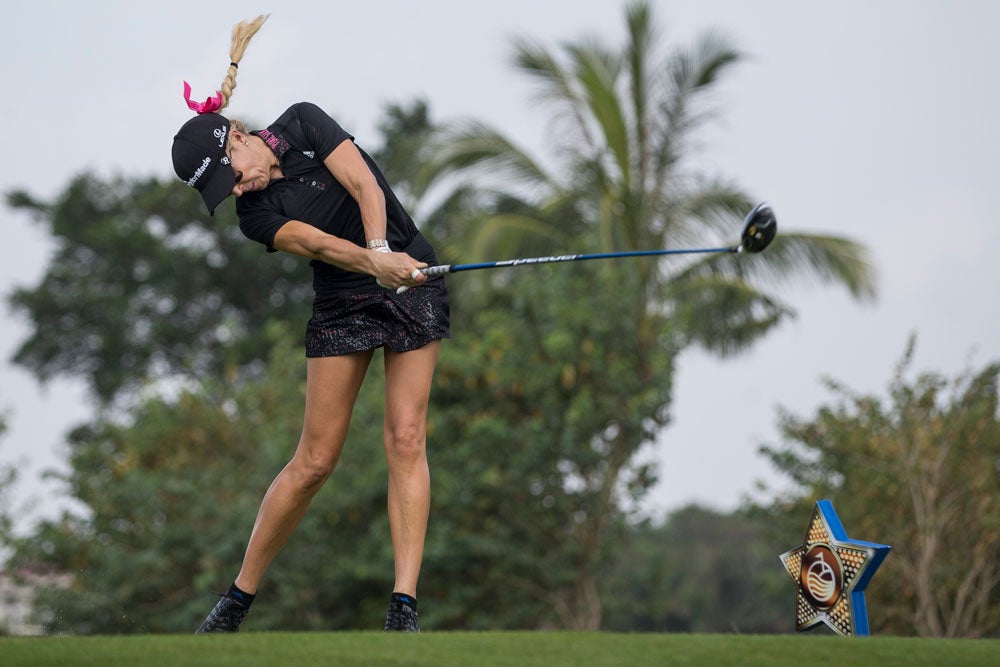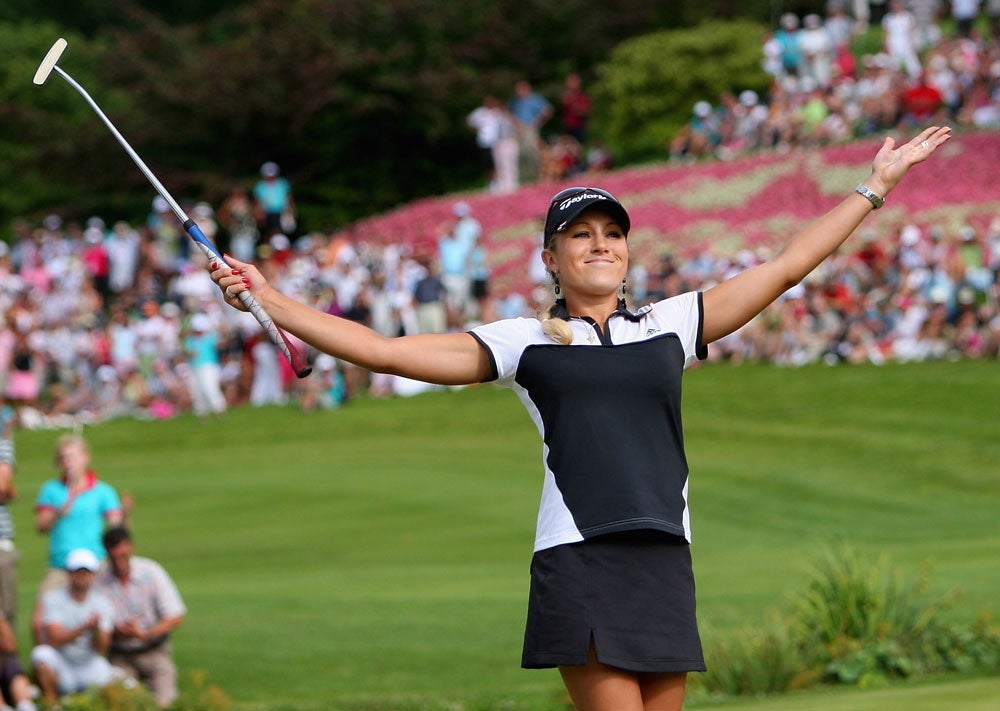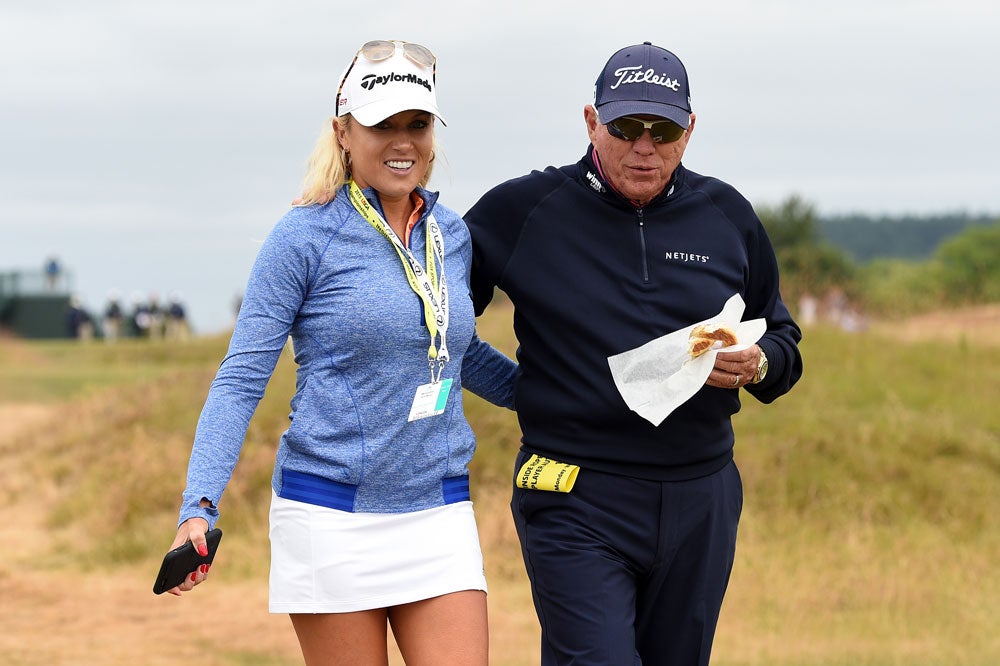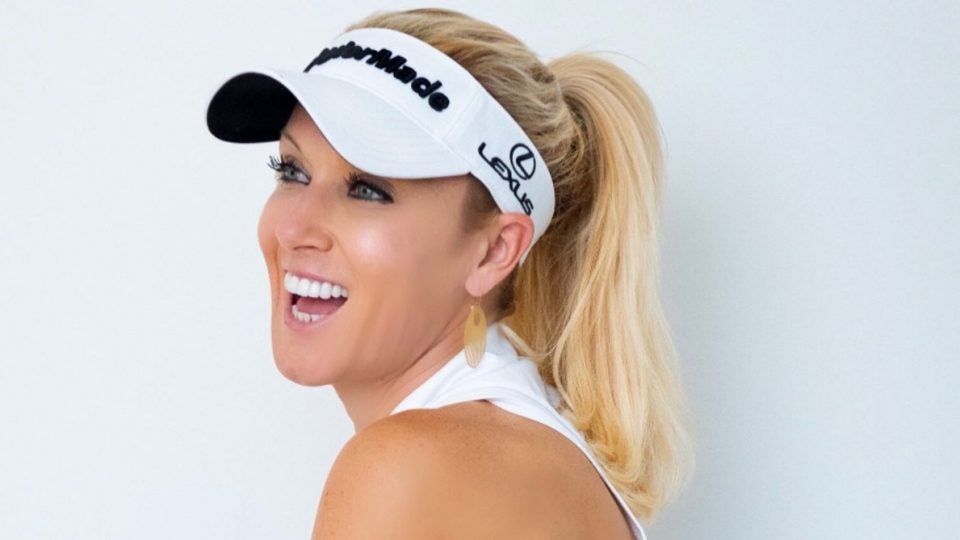On Thursday, at Boca Rio Golf Club in Boca Raton, Fla., I will make the 332nd start of my LPGA career.
I will approach this tournament with the same goal that I have set for myself in every event I’ve entered since joining the tour in 2001: win. That is the sole reason I continue to play out here; I have accomplished all my professional, financial and philanthropic goals.
Except, this time, something will be different. I will be making the first start of my final LPGA season.
I actually had planned to retire in 2010, when I was 27. My body was done, my back shot. Four surgeries later, my back feels fantastic — it’s strong and pain free. But the lingering issues, which started in 2006, have led me to realize I’ll never be the player I was. My back limits my practice time to a maximum of three hours per day and keeps me from competing on courses with deep rough and uneven lies. A routine like that might work for some, but, for me, I can’t give my best unless I play regularly. If I can’t give my best, I don’t want to be out there. I’m a professional athlete. I have pride.

I tried a reduced schedule in 2018 and ’19, but the results said it all: For someone who plays to win, I haven’t come close!
So now, the decision made, I can reflect on what a career on the LPGA has meant to me. In a word, everything.
I didn’t grow up with the advantages many players, men and women, have enjoyed. I played on the boys’ team at my Northern California high school and my family could not afford for me to compete in national junior tournaments. At 18, with a chance to turn pro, I went to LPGA Q School. I earned my card in July 2001 and have since played in 361 professional events worldwide.
From the start, among my top priorities were financial security and taking care of my parents. Fortunately, I achieved both by 2005, when I was only 22.
By the time I won my first tournament — the Evian Masters in 2007 — I had established three businesses: a cosmetics company, a (non-golf) apparel line and a handbag company. I had also signed contracts with more than a dozen Fortune 500 marketing partners and done licensing deals on four different continents.

As for posing for the SI Swimsuit issue, swimsuit calendars and risqué photo shoots or speaking at the 2016 Republican National Convention (some argued that I was distracted, even demeaning the game and my gender), I didn’t apologize then, and I’m not going to apologize now. Thankfully, no matter what I chose to do with my platform, my fellow tour players have always supported me.
I never bought into the theory that a female athlete couldn’t be attractive, possess business savvy and be a fierce competitor. My greatest off-course frustration was unequal pay in corporate outings. Why couldn’t female golfers be paid as much as our male counterparts? I’m proud of each contract and each company that didn’t use my gender as a reason to pay me less.
I can hear the critics now. I was too caught up in photo shoots, my TV show and marketing deals. Golf was not a priority.
If that was the case, I allocated my time poorly. If I had to estimate, I likely spent 90 percent of my time doing something that earned me 10 percent of my income (playing on the LPGA Tour) and 10 percent of my time doing something that earned me 90 percent of my income (business deals). But I don’t regret those decisions for one second. It wasn’t about the money. It was always about the chance to compete against the best in the world. It still is.
Only those closest to me know how important winning is. The media, my peers, the fan — no one could put more pressure on me than I put on myself. That pressure caused me to make countless mistakes with my health in my first 10 years on tour. I didn’t always listen to the game’s best coach (Butch Harmon) when he advised me not to over-practice. I ignored doctors and came back from injuries before I was ready, taking anti-inflammatories and cortisone injections as if I was playing a different sport on Sundays.

So, with that burning desire and commitment to win, why did I win only one LPGA title?
That’s easy. There were some serious flaws in my game — in my swing, my attitude, my psyche. Also, in case you hadn’t noticed, there are a ton of talented players on the LPGA Tour, and they keep getting better. Still, the lack of victories never affected my passion for the sport.
I don’t plan on slowing down in my mission to grow the game, empower youth (especially girls) and help companies find immense value through spending money in women’s golf. I enjoy the business side of golf every bit as much as I enjoy the playing side. The opportunities are endless and I plan to make an even bigger impact on the game in my post-tournament career with my marketing partners; my company, NR1; my position on the President’s Council for Sports, Fitness and Nutrition; and my Fox TV show, 18 holes.
I have been playing on borrowed time for more than a decade, and now, with the end in sight, I hope to finish strong. My 2020 plan is to compete in 10 events. While my back is likely not as bad as Tiger’s, he has certainly inspired me to believe it’s possible to win again. Whatever happens, I will enjoy every minute of it.
To receive GOLF’s all-new newsletters, subscribe for free here.
ADVERTISEMENT


